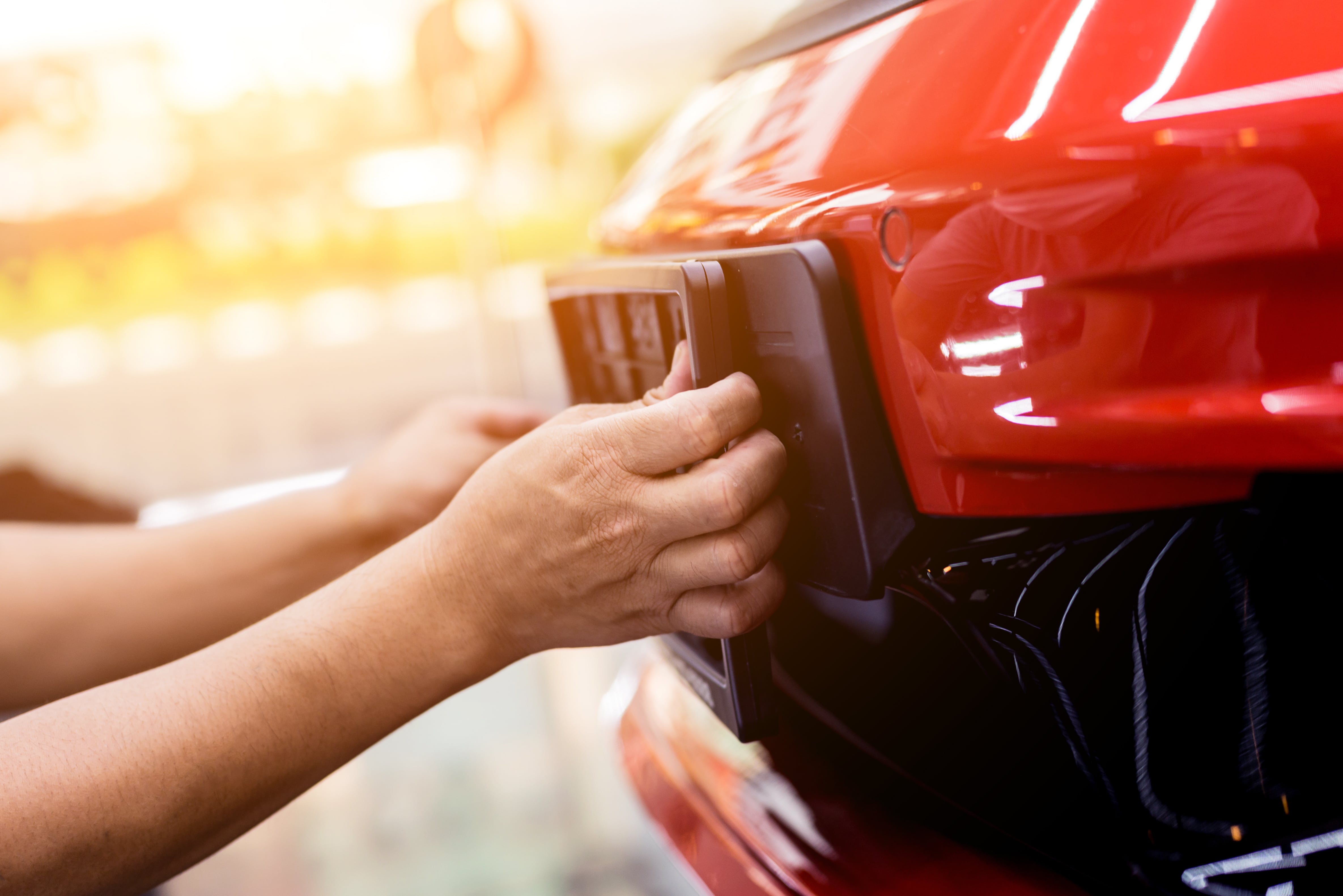A simple guide navigating rules and costs associated with purchasing a personalised number plate
There are a million and one reasons people buy personalised number plates – Maybe you want to show off your fresh whip? Pay homage to your hilarious nickname? Or just want to subtly differentiate your car from everyone else’s?
Whichever reason takes your fancy, it is highly important to understand exactly what is involved in buying a new plate for your car; we take a look at the key considerations of purchasing a number plate, where to buy, and whether it can affect your insurance policy.
How can you purchase a personalised numberplate?
Can either purchase one directly from the DVLA or from private sellers who specialise in buying and selling number plates (For instance: Reg Transfers, Plates4Less, etc).
The majority of these sites will usually auction the plates, or allow you to buy them for a set price – so have a look at your budget and see what falls within your budget.
These services deal with plates ranging from less than £100 to registrations that come in at £100k and above – sometimes more, depending on which site you use.
So whatever budget you have to play with, and whichever method you choose, make sure you perform background checks on the seller, to ensure that the number plate you receive is genuine.
For help to identify genuine plates, click here.
Driving with fake plates can invalidate your insurance policy, so make sure you perform the proper checks before buying number plates.
What should you consider when buying a number plate?
When it comes to personalised plates, the vast majority of us want to choose one which reflects either a nickname or your actual name. Whichever one you choose is likely to cost you a decent amount of money if you want a direct copy.
We recommend trying to find a cheaper plate using your initials, or a variation of your name. This method often allows you to get your desired outcome of having your name on the number plate, but means you will have to make a small sacrifice.
For instance: If your name is Bob, and you would like to get a direct copy of your name, then it could set you back up to £250,000 (BOB I)[1]. But selecting something similar, with additional numbers and character could provide you with a huge saving – MR61 BOB would cost you £679[2]*.
Searching for alternatives, and being flexible on what you are looking for are key to finding the best deals.
But do not ignore the fees associated with buying the plate and adding it to your car.
How can I add my number plate to my car?
This is fairly straightforward.
Either the site you purchase from will process the necessary forms (often including a fee for doing so), or you can choose to assign the number yourself.
Once you have purchased a number plate, you will be given your retention document (V778) or your Certification of Entitlement (V750).
When this arrives, just simply register it using the official Government website, free of charge, and enjoy parading your new plate.
Once this has been processed, you will need to switch your number plates immediately. Don’t throw away the old one though. Keep it, just in case you want to change car and swap your bought number plate to your new car.
Just remember, it’s an offence to alter, re-arrange, or misrepresent a registration number – so make sure you follow the proper steps, otherwise a fine of up to £1,000 may come your way, as well as the threat of your registration being withdrawn without compensation.
Can I transfer my number plate to a new car in the future?
Yes. Do not worry – you can take your number plate with you, for a small fee.
To transfer your personalised number plate over to your new car, you will need to submit a completed V317 form, along with an £80.00 fee for the transaction.
Aside from this, you will need to be able to show that both vehicles have a valid M.O.T (if they are older than 3 years) and the V5 registration documents for both cars.
Will a personalised number plate affect my insurance?
No – adding a personalised number plate to your car should not affect your insurance policy.
But it is extremely important to inform your insurer that you shall be changing plates over. Failing to notify them of this change could invalidate your policy completely, if you are unfortunate enough to be involved in a road traffic accident.
Adding a personalised number plate to your car can be a great way for you to differentiate your car – as well as being a good investment opportunity for you.
So whether you choose to display it on your car, or keep them safe and sound inside your house, we hope this guide has given you an overview of the processes involved, hidden costs and how it may affect your car insurance policy.
If you do choose to switch number plates on your car, then it is vital to keep your insurer and the DVLA in the loop at each stage – to avoid problems down the line.
Drive safe and enjoy your newly purchased number plate.
*Correct at time of writing (11/08/2020)
[1] https://www.regtransfers.co.uk/info/highfliers[2] https://www.regtransfers.co.uk/purchase/paymentoptions/0/mr61bob
